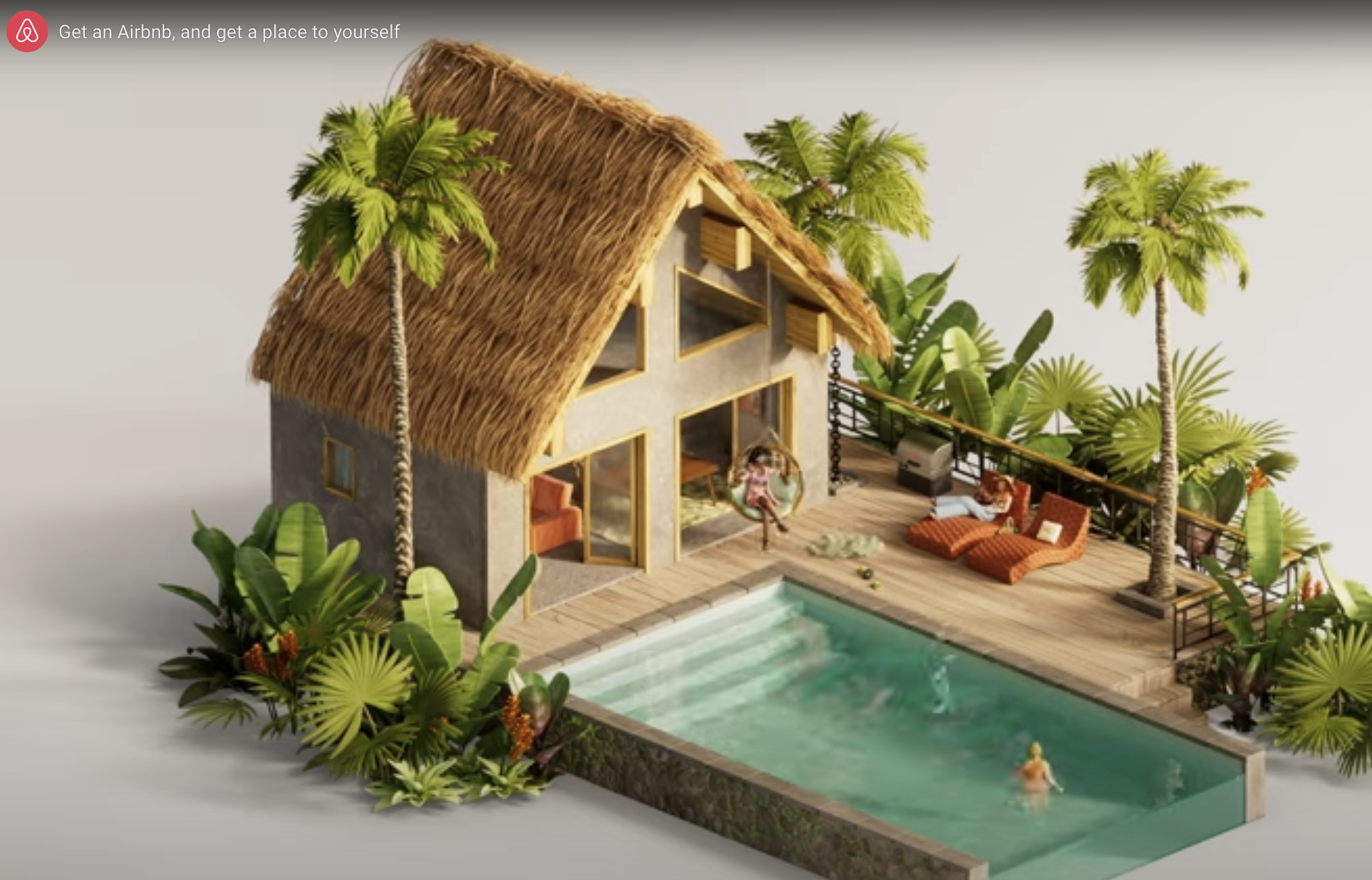Airbnb‘s most recent campaign poses a direct challenge to the hotel industry, showcasing travelers in isolated settings, using animated illustrations, in individual hotel rooms or feeling overwhelmed in crowded hotel pools. These scenarios stand in stark contrast to the campaign’s depictions that bring people together in welcoming spaces such as a comfortable home or a secluded jungle bungalow with a private pool.
It’s worth noting that Airbnb is rolling out 15-second videos aimed to educate property owners on how to optimize the rental of their spaces. The animated illustrations primarily feature groups of friends, focusing on family getaways. The campaign was developed in-house in partnership with established animation studio BUCK, known for creating animations for other tech companies like Headspace, Instacart, and Harry’s Razors. The campaign debuted in the US and Canada on August 24th and will gradually expand to Australia, Mexico, Brazil, Korea, the United Kingdom, and other European markets in early September. The videos will appear across digital and social channels.
The shift in Airbnb’s marketing strategies
Airbnb occupies a unique position. Its strong brand recognition and the quality of direct traffic it receives allow the company to reduce its dependency on Google. Airbnb is progressively taking steps to shift the perception of its brand, focusing on storytelling.
In 2022, Airbnb introduced brand marketing as a share of its sales and marketing expenses for the first time, disclosing that the company allocated 770 million Euros for “brand and performance marketing” during the first three quarters of the same year. Of this, 26% represented increased expenditures on specific brand marketing campaigns.
This pivot from performance marketing to brand storytelling was part of Airbnb’s response to the pandemic and its efforts to reconnect with hosts, guests, and homes.
Airbnb’s CEO, Hiroki Asai, explains at the conclusion of this new campaign, “As Airbnb grew, prior to the pandemic, it was losing its differentiation. There were many competitive options for travelers out there, and Airbnb was losing its uniqueness. Thus, coming out of the pandemic, the decision was to really focus on our core business and to concentrate on creating experiences, features, and a product… to differentiate ourselves and then use the brand to communicate and educate people on what those differences are.”
Tags: Hiroki Asai, Airbnb
